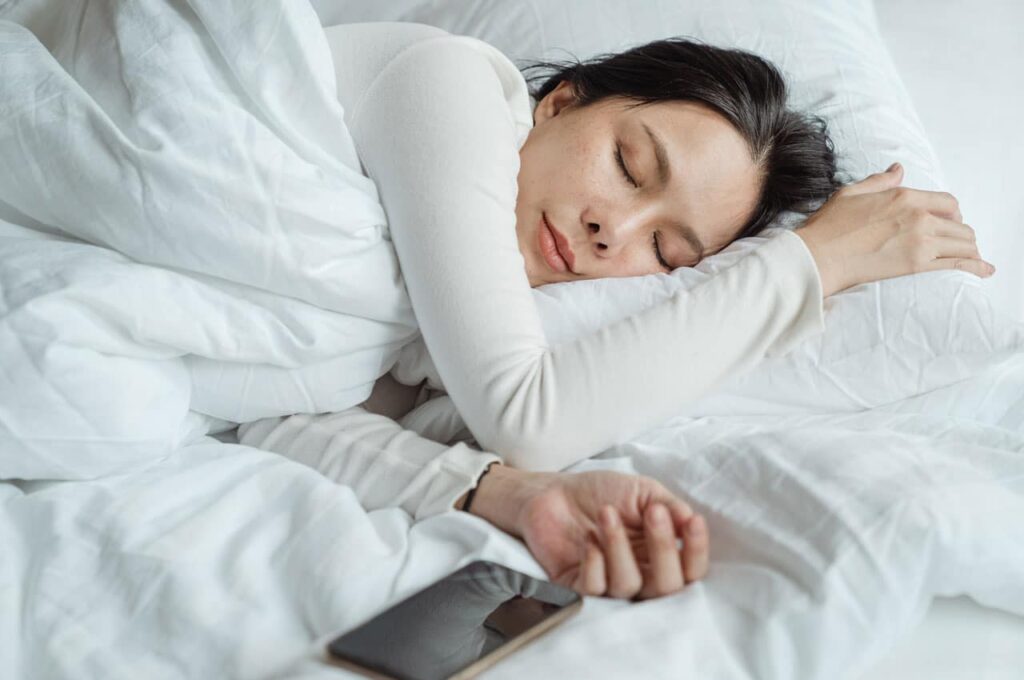More than 264 million people around the world suffer from depression, with many more experiencing periodic symptoms. While there are a few types of depression, disturbed sleep patterns tend to impact most forms of it.
Some people who are depressed may experience hypersomnia or constant tiredness. Recognizing the symptoms of both hypersomnia and depression are key to living a mentally healthy life and helping loved ones seek assistance.
In this article, we’ll discuss exactly how hypersomnia and depression are linked, plus how to combat or prevent these symptoms if you’re facing them.
All About Hypersomnia
If you’ve ever had a really awful night’s sleep and wake up feeling totally drained still, that’s similar to what people with hypersomnia experience. Except, it’s very frequent and doesn’t subside even with enough sleep.
Over time, this can inhibit daily life and make it harder to travel, learn, and perform at work.
Someone with hypersomnia may sleep 12+ hours per night and still feel tired during the day, so it’s very unlike just getting one bad night of sleep.
What Causes Hypersomnia?
Other sleep disorders like sleep apnea and narcolepsy or sleep deprivation can all impact hypersomnia. Here are some symptoms of hypersomnia:
- Low energy overall
- Irritability and feeling tense
- Restlessness or tiredness
- Having a tough time remembering things or staying focused
Diagnosing and Treating Hypersomnia
People typically are diagnosed with hypersomnia when they speak with their doctor about feeling constantly sleepy. In some cases, people may even fall asleep by accident at work or feel drowsy while driving, which is very dangerous.
To completely assess a patient, doctors may perform a sleep test or ask the patient to make a sleep diary, which tracks how many times per night the person wakes up and how they feel.
To treat hypersomnia, medical professionals may prescribe antidepressants or other medication. Otherwise, lifestyle changes and reducing alcohol consumption might be enough to curb the worst symptoms of hypersomnia.
All About Depression
Depression isn’t just feeling low or sad; it can present in various ways that make it hard to recognize, even if you’re experiencing it yourself. But left untreated, depression can be dangerous.
Depression is a mood disorder that may feel like sadness or boredom but alters your ability to carry on with normal life. While some people may only have a depressive episode last a few weeks, some people constantly battle it.
What Causes Depression?
Family history, childhood trauma, chronic illness, and brain structure all play a role in someone’s risk of feeling depressed.
21% of people who use drugs or have addiction issues also experience depressive episodes.
Diagnosing and Treating Depression
Here are some symptoms you may experience if you are suffering from depression:
- Changes in appetite or weight gain/loss
- Changes in sleep patterns (oversleeping, insomnia)
- Fatigue (constant tiredness)
- Feelings of low self-worth
- Feeling irritable or agitated
Depression can contribute to chronic health conditions like heart health and even cancer, so it’s important to seek treatment if you or a loved one is showing these symptoms. Luckily, depression is treatable with help.
Treating depression can happen in a few ways, the main being therapy. Exercise, which raises endorphin levels, can also be incorporated into a treatment plan. Medication, inpatient treatment, and animal therapy can also be used.
The Connection Between Hypersomnia and Depression
Excessive sleep and fatigue can be symptoms of depression, and hypersomnia can be a contributing factor to depression. Because these things are intrinsically related, it’s important to identify the root causes of each and address them for better overall mental health.
Evidence of a Connection Between Hypersomnia and Depression
A 2013 study showed that hypersomnia could predict the risk of future depression. In 2015, another study explored the connection between excessive sleep and mood disorders. The researchers found that “hypersomnia clearly plays a key role in the course of mood disorders.”
It’s not just adults, either. In children, being sleep-disturbed can lead to symptoms of depression as well, which proves that depression and sleeping too much isn’t isolated to adults.
Preventing Depression and Hypersomnia
There are a few actions you can take to help ward off depression and sleeping too much or feeling tired during the day.
Firstly, it’s important to maintain your health. Try to exercise or move your body once a day to get some endorphins going. Whether that’s taking a daily walk with the dog or trying a new activity like yoga or cycling, moving your body is a proven way to increase self-worth and fight depression.
Exercise may also help you tire yourself out so when it’s time for bed, you can fall asleep and stay asleep.
Another way to ward of depression is to eat a well-balanced diet. Some foods can help release serotonin in your body. Nuts and seeds, eggs, pineapples, and even tofu may all help keep your mood high by boosting serotonin.
Lastly, get enough sun (while wearing sunscreen, of course)! Spending time outside in nature or even sitting in a sunspot at the park can boost your mood and make you feel connected to the world.
The Final Word on Hypersomnia and Depression
It’s pretty clear that hypersomnia and depression can feed one another. If you think you’re feeling any of these symptoms, don’t feel ashamed. Many people feel this way and seek help to understand their minds and continue on to live happy, fulfilled lives.
If you’re still questioning, read through more of our blog to understand the dynamics of mental health and mood disorders.
For more assistance, visit our admissions page and reach out to us with any questions. We’d be happy to discuss whether you could benefit from treatment at our center.





































